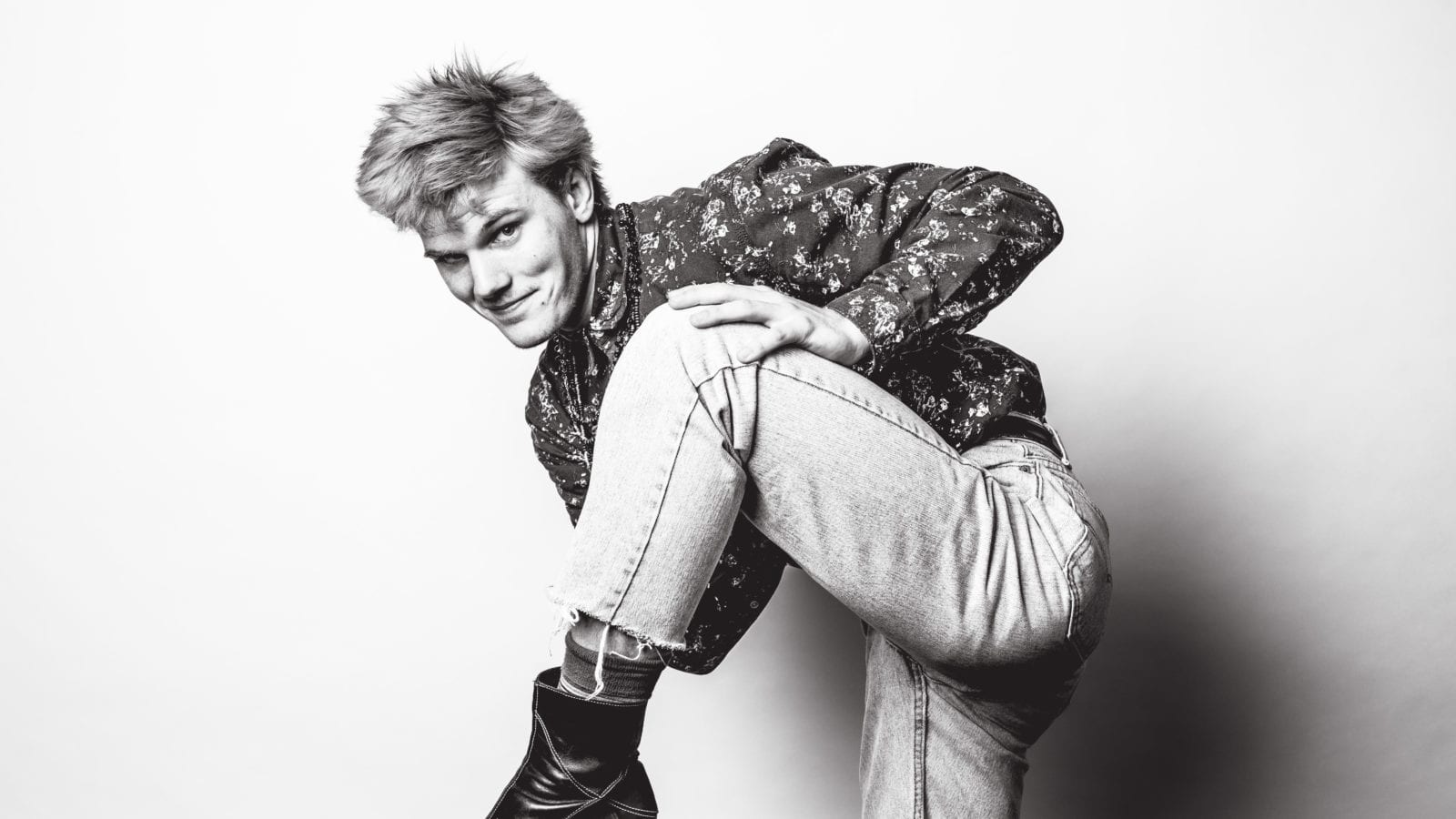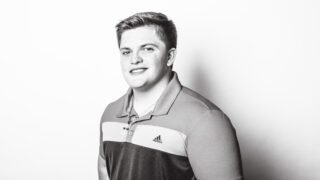The Scholar: Harrison Winrow
The Project: Deep in the Closet of Ms. Maiden Name
The Essential Question: Mr. Winrow’s production explores the pain and the joy of an effeminate teenage boy experimenting with his sexuality, specifically the night 15-year-old Horace B. Wimp tries on his mother’s clothes in her closet. Employing bold lighting, a range of props, and a soundtrack of music from the ’60 and ‘70s, the piece transforms the audience into the boy’s dressing mirror. “It was not entirely autobiographical,” Mr. Winrow explains, “but I still remember when I was 11 years old, putting on my mom’s high-heel shoes and one of her dresses in her room and not really being sure how I felt about myself, but knowing that I loved looking at myself in the mirror wearing those clothes and dancing around.”
Notable Quote: “I used a lot about my favorite music in my piece, music that had some effeminate qualities, like ‘Michelle’ by the Beatles, any Jim Morrison song, although that’s not really effeminate, but his leather pants and his musk—I think that you can smell it though his music—and Frankie Vallie and the Four Seasons. A falsetto voice does a lot in this piece. When you are wearing high heel shoes as a guy, you almost feel like a falsetto voice.”
Biggest Challenge: “One of the most enjoyable parts, and one of the most challenging parts, was getting the technical side of the theater to work in concert with the performance side of the theater. I worked with Charles Raffetto to have all these crazy lighting cues. They have LED spotlights on the stage that can change colors on a dime, and so I had them flashing all these crazy colors. My lines had to synchronize with the lighting cues and the music cues. One of the more challenging parts, as well, was to stop tinkering with the script and let it be. I was adding things in, altering things, and every time I put my pencil down and was like, ok, this draft is done, this is going to be my performance, I would wait a half hour and I would have another idea that I thought had to fit in there.”
Surprising Discovery: “That I have a knack for playwriting. I have always enjoyed writing poetry and just last year, when I came to Williston, I discovered that I enjoy performing on stage and had a real passion for it. I was able to combine the two of them and ended up cranking out three alternate versions of this play in a matter of two weeks. I also discovered there’s a lot more than just acting when you are on stage, especially when you are choreographing an entire performance. There’s the technical side, the playwriting side, the directing—and the acting comes in only on the tail end.”
Tip for Future Scholars: “Don’t come in with a preconceived notion that you need to know what you want to do. I came in with a really strong vision and I think that it prevented me from really embracing all the different creative techniques that [performing arts teacher] Emily Ditkovski had. She brought in so many visiting artists and they had all these techniques on how to search yourself, how to create an autobiographical piece, how to find an overarching metaphor in your performance, and I already had a few drafts of this script and a really distinct artistic vision for my piece. I think you would get the full Williston Scholars experience if you come into the class with a few ideas, but really be open to any experience Emily throws at you, and just have fun with it. I don’t think there has ever been this kind of opportunity for me—to be in a class, to have all these expendable resources, and have complete creative freedom. It’s just out of this world. I had so much fun doing it.”


